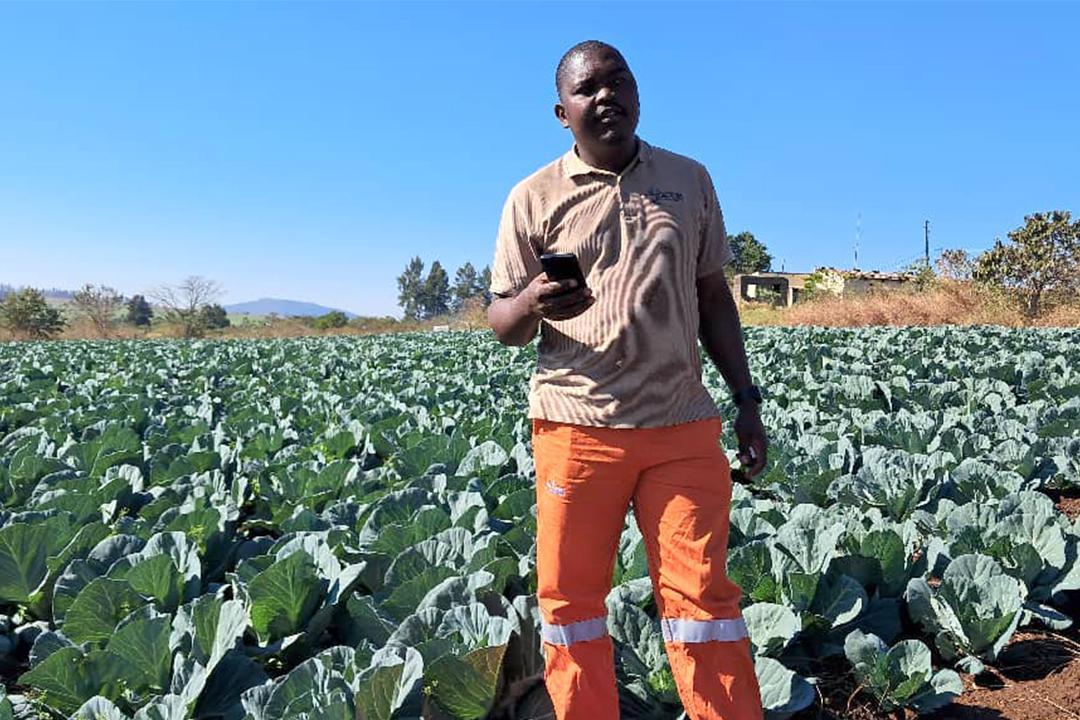Africa-Press – Eswatini. Ernest Mahlalela (28) is redefining what it means to be a farmer in Eswatini proving that agriculture can be both profitable and progressive. Raised in Lomahasha, where farming was a family tradition, he now manages a thriving hectare of farmland in Luyengo. His journey reflects a growing movement of entrepreneurs transforming agriculture into a modern, scalable business with real economic impact.
Ernest’s connection to the land runs deep. Growing up in a family that farmed horticultural crops in the early 1990s, he learned the basics of planting, harvesting, and selling at kaMfundza market located near the Lomahasha Border Gate. “My parents gave us small garden plots,” he recalls. “Whatever we harvested, we sold and all the profits were ours. That’s what gave me the hunger for agriculture.”
But unlike many who stop at subsistence farming, Mahlalela saw an opportunity to go further. In 2020, when he enrolled at the University of Eswatini’s Luyengo Campus for a BSc in Agricultural Extension, he decided to launch his own farming business renting just 0.2 hectares of land to start. Over the years, he expanded operations to a full hectare, using innovative techniques and research learned through his degree programme.
Balancing student life, business, and family was not without its strain. “Being a class representative from first to final year was tough,” he says. “There was a point in second year I wanted to quit, but the class refused to let me step down. On top of that, managing a farm and being there for my family all at once life was teaching me Change Management as a course of its own.”
Mahlalela’s success didn’t come easy. From extreme weather like drought and heatwaves to pest invasions and soaring input costs, he has endured many setbacks. The worst was the hailstorm of 28 October 2023, which completely wiped out his crops. “It was devastating,” he says, pointing to photos of flattened fields. “But I didn’t allow that to end my story.”
Support from networks like the Eswatini National Agricultural Union (ESNAU) and partners like CFI played a critical role in his resilience. Through ESNAU’s Step Up programme, Mahlalela won farm inputs, boosting his operations. Later, he was selected as a beneficiary of the SIMAMA project, an initiative that supports young agri entrepreneurs. These opportunities, he says, have sharpened his vision for long term growth.
Beyond his own success, Mahlalela’s impact ripples through the community. His farm creates jobs and supplies fresh, local produce proving that agriculture stimulates not just soil, but economic growth. “There’s a bigger picture,” he explains. “Agriculture is a business that feeds families, builds livelihoods, and grows the economy.”
He’s also embracing the digital era. Direct to consumer sales through markets and online platforms have expanded his reach. “I have seen demand for locally grown food rise sharply,” he notes. “Consumers want to support Swazi farmers, and that helps us grow even more.”
As the conversation around agriculture evolves, Mahlalela believes it’s time for more young people to think differently. “Farming is not just for old people or for survival,” he says. “It’s a modern business. It needs planning, budgeting, marketing, and smart use of technology.”
His message to the youth is clear “Join ESNAU. The Union offers training, exposure, and linkages beyond farming. We need more young people who are serious about making agriculture a career.”
Looking ahead, Mahlalela sees endless potential. With a growing customer base, support systems, and a passion rooted in both tradition and innovation, he’s determined to turn every challenge into growth. “I’m not just farming to sell vegetables,” he says. “I’m building a legacy.”
For More News And Analysis About Eswatini Follow Africa-Press







